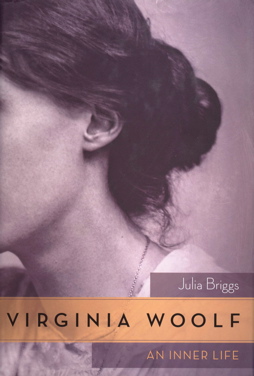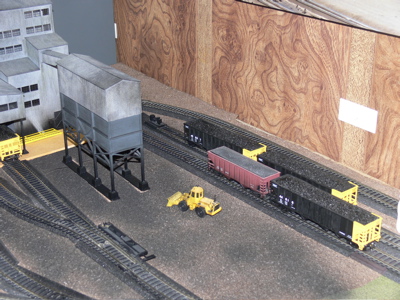Wednesday January 3, 2007 6:35 am Lethbridge Sunrise 8:28 Sunset 16:43 Hours of daylight: 8:15
A. Morning Musings
6:35 am It is +4 C at the moment with a high of +6 C forecast. The combination of wind and warm temperatures has melted almost all of the snow.
|
|
From rear window |
South patio |
Both images taken at 11:30 am |
I still have two chores outstanding: returning the empty bottles to recycling and returning 4 math books to the uni. I will attend to both these items early this morning.
Reviewing my list of ToDos for the future, I noticed that I once spent time scanning the covers of books that I was currently using. This might be an idea worth revisiting. It does take a few minutes, but I have a few minutes. I could place the images at the top of the appropriate notes page, much as I do with the weather images for these journal pages.
I should also take a few pictures of the 100 ton quad hopper cars with the coal loads in them, and insert these images on the appropriate note pages for Model Trains. It is fortunate that I am capturing these ideas early in the year when it is easy to make the change.
B. Plan
| Immediate |
|
|
| Health |
Walk & exercise |
1 hr |
| Technology |
Begin reading "iPhoto" |
1hr |
| Literature |
Continue reading "Virginia Woolf: The Inner Life" by Julia Briggs |
2 hr |
| Model Trains |
Install a base under the coal mine structure. |
1 hr |
| |
Nail down roadbed and track for Pine Ridge, The Channon & Queenston |
1 hr |
| Later |
|
|
| Chores |
Investigate water softeners for home |
|
| Technology |
Read manual for cell phone |
|
| |
Make notes for chap. 4 of "Switching to the Mac" |
|
| |
digital photography - learn about using the various manual settings |
|
| Mathematics |
Read "Fearless Symmetry" chap 9: Elliptic Curves |
|
| Model Trains |
Add ground cover to oil refinery diorama |
|
| |
Continue assembly of coaling tower |
|
| |
Purchase DCC system |
|
| History |
Read Watson "Ideas" |
|
| Philosophy |
Read & make notes for "Breaking the Spell" |
|
| GO |
Complete reading "Lessons in the Fundamentals of Go" |
|
| Puzzles |
The Orange Puzzle Cube: puzzle #10 |
|
C. Actual/Notes
8:10 am The coffee is in the cup and the scans of the covers of books completed and the appropriate changes to the first two journal entries of the year made. I gave a brief thought to scanning both the front and back covers as the back cover often has some additional information, but decided against this when I realized that the image would have to be almost full size for the print to be readable. However I am still bemused by how often I have a new idea for tinkering with these web pages. You would think by now I should know what I am doing.
10:30 am I continue to play. I have scanned a few back covers and have set up a separate page where one can view the back cover and then return to this web site. This definitely provides some additional information for those viewers (including myself) who wish to see it. Pages for January 1 and January 2 have been updated.
|
Model Trains 02
January 3
|
Model Trains Notes |
6:20 PM Earlier this afternoon I spend about an hour working with my model train layout.The original idea was to simply take a couple of photos of the coal cars with their new loads in them. However when I tried to roll the first car under the coal mine structure the load snagged on the underside of the structure.
|
It quickly became apparent that the problem was caused by the foam underbed for the track which had the effect of raising the track by about 1/4". My solution was to insert a base under both the mine structure and the track while removing the foam underbed for that section of the track. Here are 4 images of the result.
The base still needs to be painted black.
SUMMARY of the session: I continue to slowly improve the layout as little glitches are noticed and overcome.
|
|
|
|
Literature Notes |
7:15 PM I reread the first 4 chapters of Julia Briggs' biography of Virginia Woolf this afternoon. The debate I have been having with myself is about how to make a set of notes for this. One option was to build a table of the important events in her life, interspersed with when she wrote each of her major novels. But I am not that interested in studying and remembering her life history. I do not want to become an "authority" on Virginia Woolf.
Rather, I am interested in reading her novels for the insights she provides on life and interpersonal relations. I have decided to follow my regular approach of noting a few quotes from the book that appealed to me. |
 link to back cover link to back cover
- "Woolf's fiction is centrally concerned with the inner life, and finding ways of re-creating that life in narrative." [p. ix]
- "Her first short story written for the Hogarth Press takes place inside the head of a woman sitting by a fire and looking at 'The Mark on the Wall' (as the story is called), while she meditates on the elusive and fragmented nature of experience. Her train of thought is interrupted by a man with a newspaper who identifies the mark, thus extinquishing the rich imaginative potential of uncertainty." [p. ix]
- "In his magisterial survey of representation in European fiction, Mimesis, the German critic Erich Auerbach argued that Woolf's method of depicting the interior life of a range of characters gestured towards 'a common life of mankind on earth', and he considered this a new and significant development in narrative method." [p. x]
- "In 1918, she noted in her diary, 'The reason why it is easy to kill another person must be that one's imagination is too sluggish to conceive what his means to him - the infinite possibilities of a succession of days which are furled in him, & have already been spent'. " [p.x]
- "She remained a fascinated observer of her own thoughts and also of her own creative process, recording both in her diaries and letters..." [p. x]
| This latter point parallels my own interest in Learning, and in how I go about it in a variety of contexts such as model trains, mathematics and this web site. |
- The Voyage Out (1915):
- "But before the novel was finished, the nature and meaning of marriage would be thoroughly explored, and its promise of 'calm sea and fair voyage' dismantled." [p. 3]
- "Our narrative expectations are frustrated and disappointed with an abruptness that seems closer to the randomness of life than the tidier outcomes of fiction." [p. 11]
- Night and Day (1919):
- "Instead Night and Day focuses on day dreams, the willed or controlled fantasies in which both the hero and heroine indulge in order to hold the dissatisfactions of their daily lives at bay." [p. 34]
- "Woolf's headaches of 1910, 1912 and 1913 may be attributed to genetics or personal trauma, to biohemistry or family interaction, but her inner tensions parallel those of a darkening world beyond." [p. 47]
- " 'It's life that matters ... the process of discovering, the everlasting and perpetual process, not the discovery itself at all.' " [p. 50]
| Once again, this quote of Woolf's mirrors my interest in Learning ... and again ... |
- "... but she recognized that she had failed to solve the riddle of how a modern novel should be written: 'as the current answers don't do, one has to grope for a new one; & the process of discarding the old, when one is by no means certain what to put in their place, is a sad one.' " [p. 51]
- Monday or Tuesday (1921):
- Virginia recognized the power of the mind 'plaiting incessantly the many-coloured and innumerable threads of life'..." [p. 75]
- Jacob's Room (1922)
- "Woolf's third novel, Jacob's Room, is her protest against the First World War, and the shocking impersonality of its killing machine." [p. 84]
- "Woolf had instinctively hated violence from childhood. She remembered the exact moment when she had turned against fighting: she and Thoby had been 'pommeling each other with our fists' on the lawn at St Ives when suddenly she thought, 'why hurt another person? I dropped my hand instantly, and sstood there, and let him beat me,' A sense of 'hopeless sadness ' followed." [p.87-88]
- "Jacob Flanders is the unknown warrior, individual and representative, yet minus the distortions of sentiment or retrospective glory. There is nothing military about him, for this was a war fought largely by civilians in uniform." [p. 93]
- "The novel seeks to hold together the multiplicity, inconsistency and variety that characterize our experience of living ..."[p. 94]
- "Rooms, like our bodies or our lives, express us yet are only partly ours, carrying the marks of our predecessors as well as our own histories." [p. 96]
SUMMARY of the session: Making these notes has been as much fun as reading both Woolf's novel Jacob's Room as well as Briggs' commentary.
|
|
D. Reflection
8:30 PM Another satisfying day. I completed all of the chores that I had set myself, made a little progress with the model train layout, and finally returned to Virginia Woolf and Julia Briggs. I was lucky to catch the last minute of the overtime hockey game between Canada and the US on television and then the final shootout to determine a winner. It was hockey at its very best. Gripping, with the outcome in the balance for a series of 7 shootouts before a winner was determined. For Canada it was euphoric, but for the US players, heartbreaking. Either team could have won and they both deserved to.
I am beginning to think that any day that includes at least two Learning activities is a good day. Now for a little iPod music. |







 link to
link to